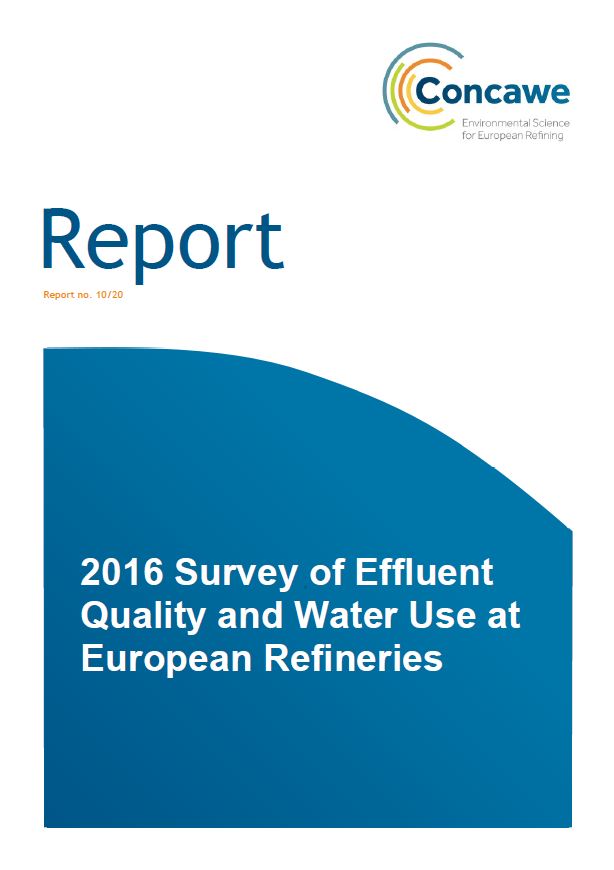Publications
Search publications
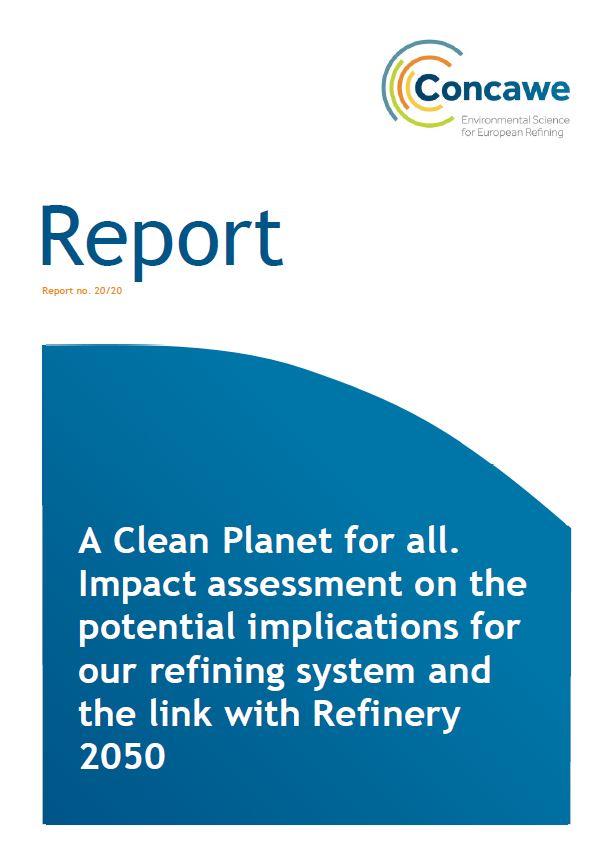
September 22, 2020
A Clean Planet for all. Impact assessment on the potential implications for our refining system and the link with Refinery 2050 (Concawe Report 20/20)
Report no. 20/20: The “A Clean Planet for All” long-term strategy published by the European Commission (DG CLIMA) in 2018 analyses different long-term scenarios that could lead to significant GHG...

September 18, 2020
Effect of environmental conditions and microbial communities on ETBE biodegradation potential in groundwater
Report no. 19/20: This report describes research carried out to determine: a) the environmental conditions which may support Ethyl tert butyl ether (ETBE) biodegradation in groundwater, b) the prevale...
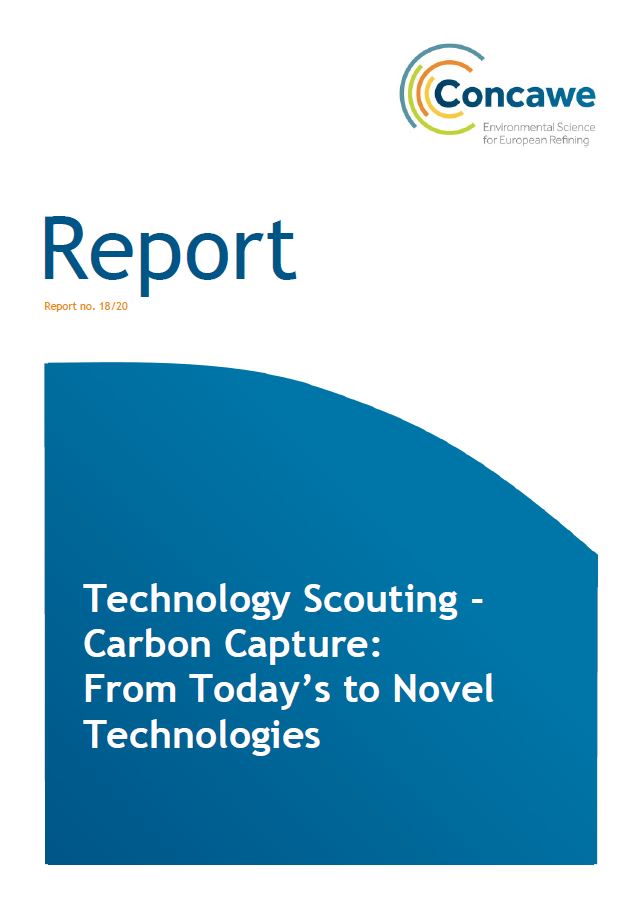
September 15, 2020
Technology Scouting – Carbon Capture: From Today’s to Novel Technologies (Concawe Report 18/20)
Report no. 18/20: The EU Commission has recently published its long-term strategic vision exploring different scenarios leading to an EU low-carbon economy by 2050. In all these scenarios, the Carbon...
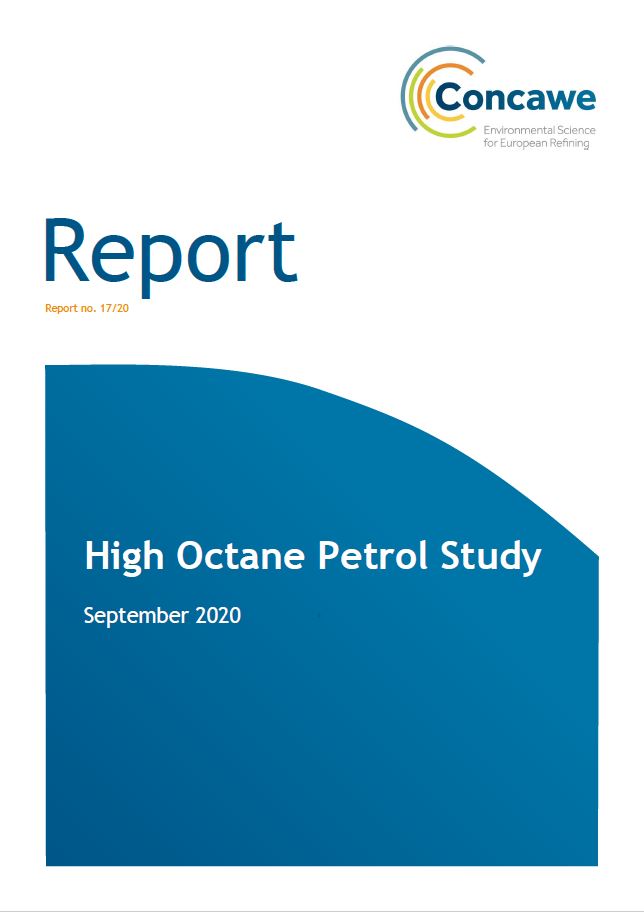
September 10, 2020
High Octane Petrol Study
Report no. 17/20: The long-term goal of the EU is the ambition of climate neutrality by 2050 (EU Energy Roadmap 2050). As an introduction to reach this target, vehicle efficiency targets for passenger...
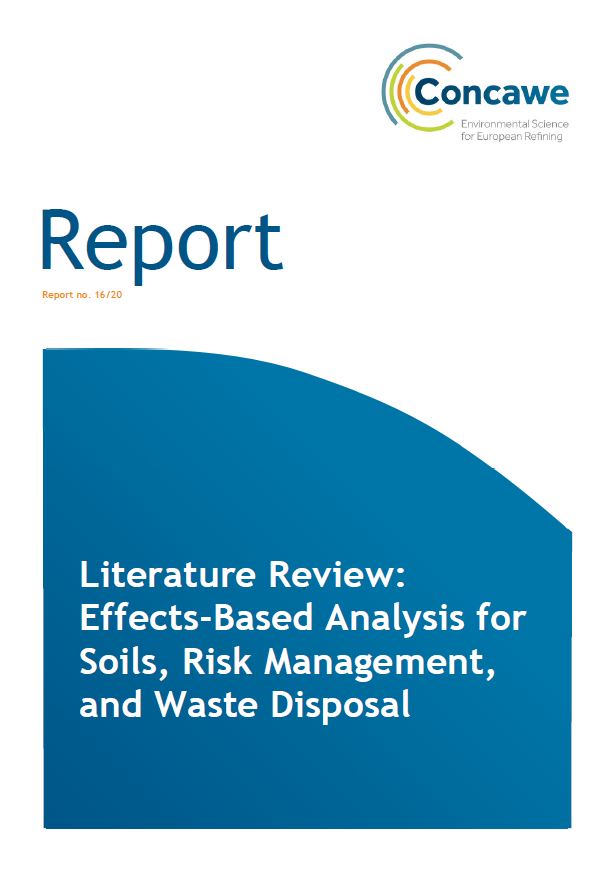
September 1, 2020
Literature Review: Effects-Based Analysis for Soils, Risk Management, and Waste Disposal
Report no. 16/20: Classification of wastes is based on different pieces of legislation including the Waste Framework Directive (Directive 2008/98/EC) (WFD), as well as EU Member State guidance, that c...
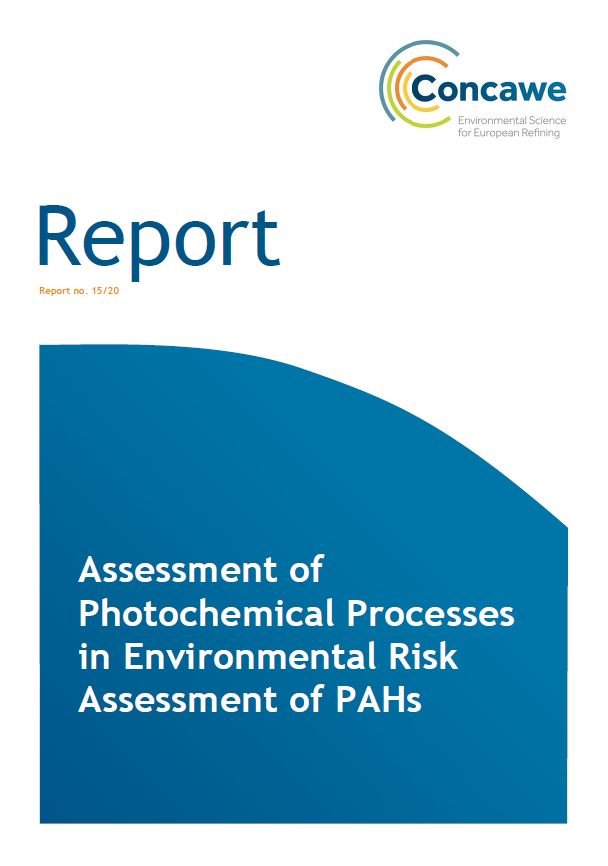
August 27, 2020
Assessment of Photochemical Processes in Environmental Risk Assessment of PAHs
Report no. 15/20: Petroleum substances may contain polyaromatic hydrocarbons (PAHs) that can interact with sunlight. These interactions can increase hazard, via photo-enhanced toxicity, and reduce exp...
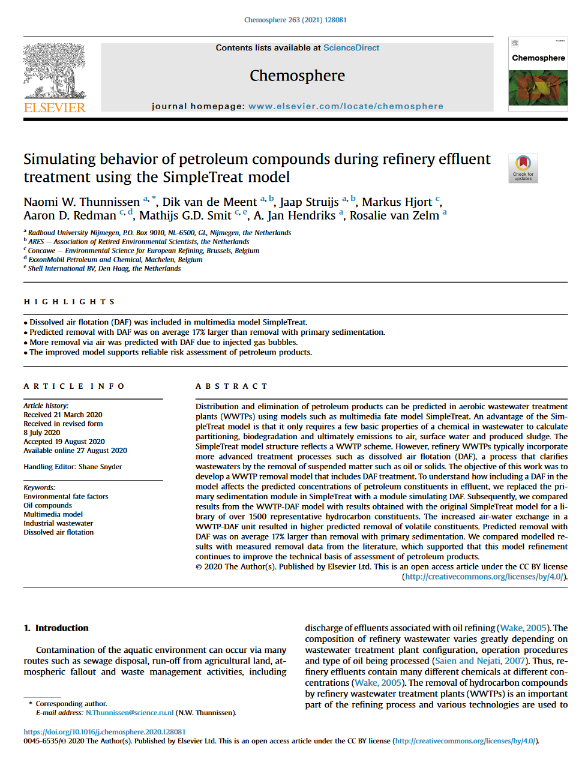
August 27, 2020
Simulating behavior of petroleum compounds during refinery effluent treatment using the SimpleTreat model
Distribution and elimination of petroleum products can be predicted in aerobic wastewater treatment plants (WWTPs) using models such as multimedia fate model SimpleTreat. An advantage of the SimpleTre...

August 5, 2020
Review of water treatment systems for PFAS removal
Report no. 14/20: The group of perfluoroalkyl and polyfluoroalkyl substances (PFAS) is a large family of anthropogenic substances with a wide range of industrial applications. Due to their specific pr...
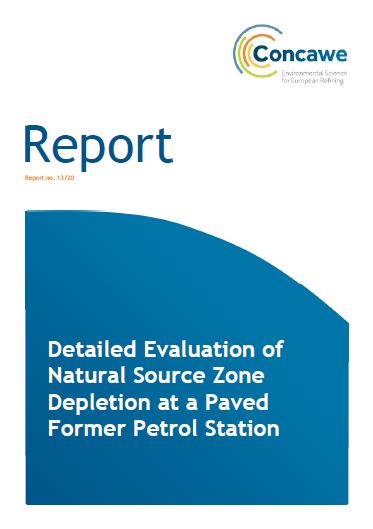
July 28, 2020
Detailed Evaluation of Natural Source Zone Depletion at a Paved Former Petrol Station
Report no. 13/20: This report presents the results of an investigation that was carried out to demonstrate Natural Source Zone Depletion (NSZD) occurred under a paved site and compare various monitori...
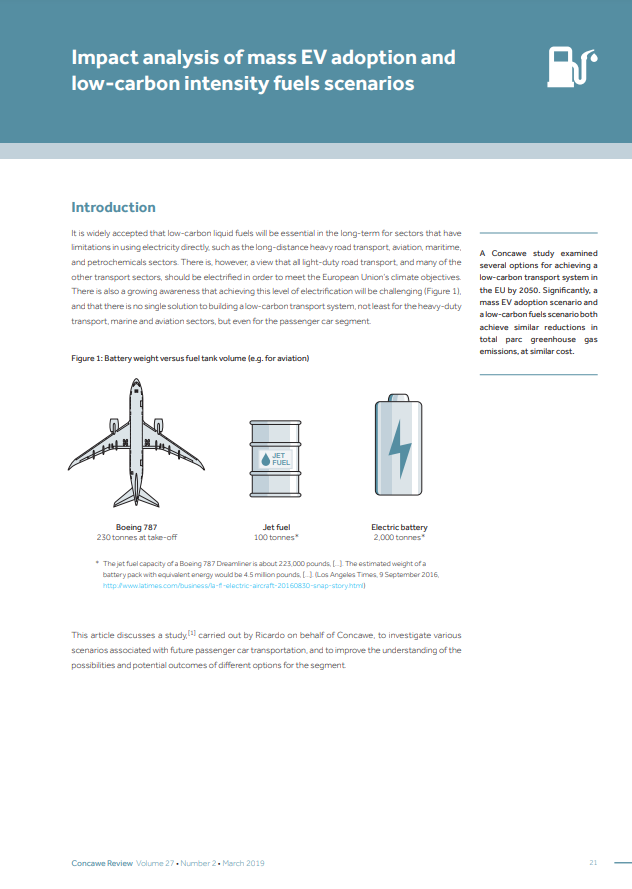
July 8, 2020
Impact analysis of mass EV adoption and low-carbon intensity fuels scenarios (Concawe Review 27.2)
A Concawe study examined several options for achieving a low-carbon transport system in the EU by 2050. Significantly, a mass EV adoption scenario and a low-carbon fuels scenario both achieve similar...
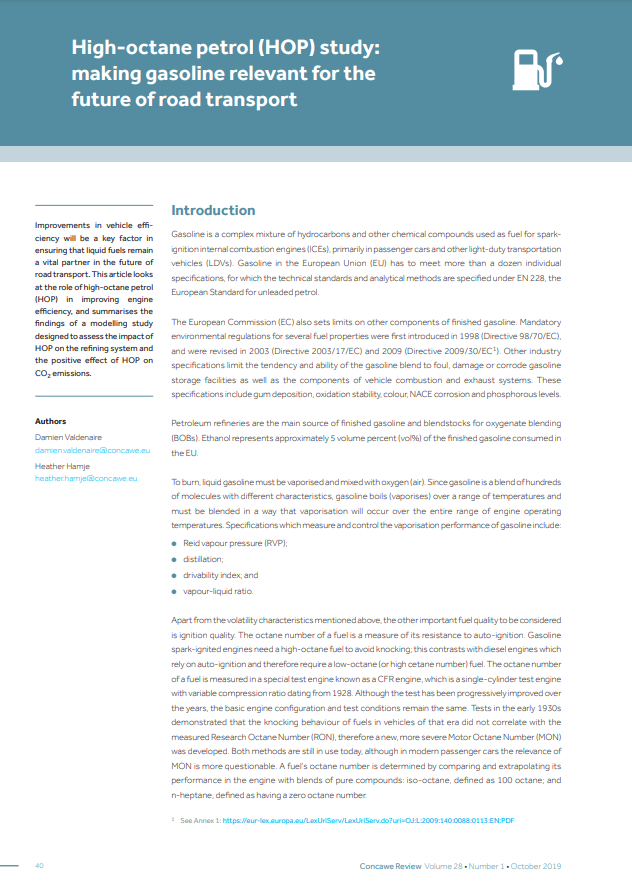
July 8, 2020
High-octane petrol (HOP) study: making gasoline relevant for the future of road transport (Concawe Review 28.1)
Improvements in vehicle efficiency will be a key factor in ensuring that liquid fuels remain a vital partner in the future of road transport.
This article looks at the role of high-octane petrol (...
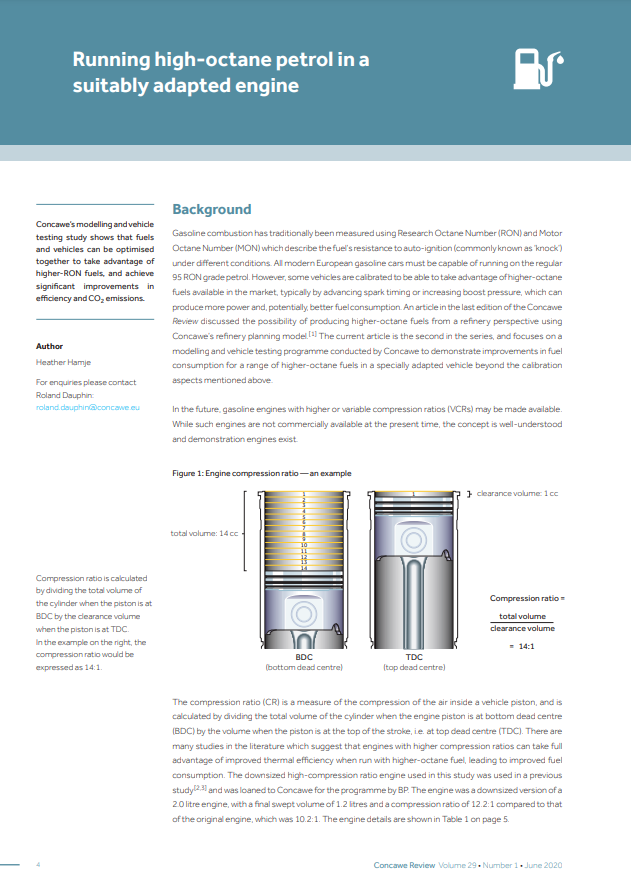
July 8, 2020
Running high-octane petrol in a suitably adapted engine (Concawe Review 29.1)
Concawe’s modelling and vehicle testing study shows that fuels and vehicles can be optimised together to take advantage of higher-RON fuels, and achieve significant improvements in efficiency and CO...
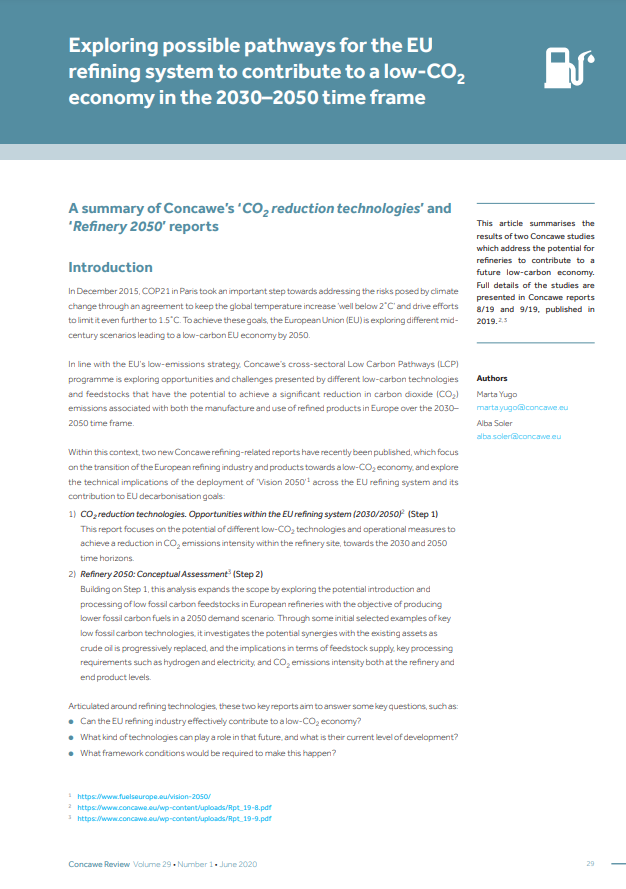
July 8, 2020
Exploring possible pathways for the EU refining system to contribute to a low-CO2 economy in the 2030–2050 time frame (Concawe Review 29.1)
This article summarises the results of two Concawe studies which address the potential for refineries to contribute to a future low-carbon economy. Full details of the studies are presented in Concawe...
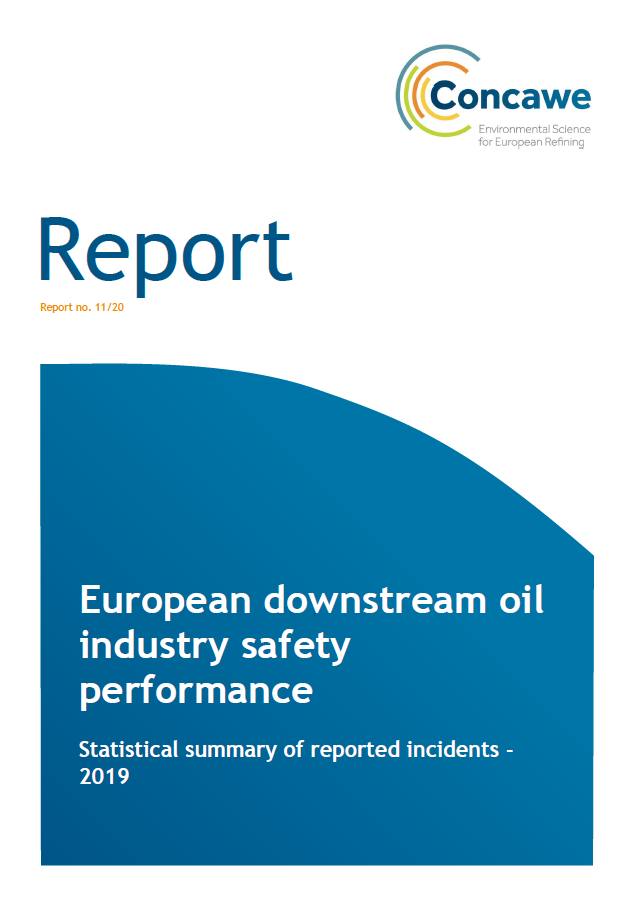
July 2, 2020
European downstream oil industry safety performance
Report no. 11/20: The 2019 annual report on European downstream oil industry safety performance presents work-related personal injuries for the industry’s own employees and contractors and process s...
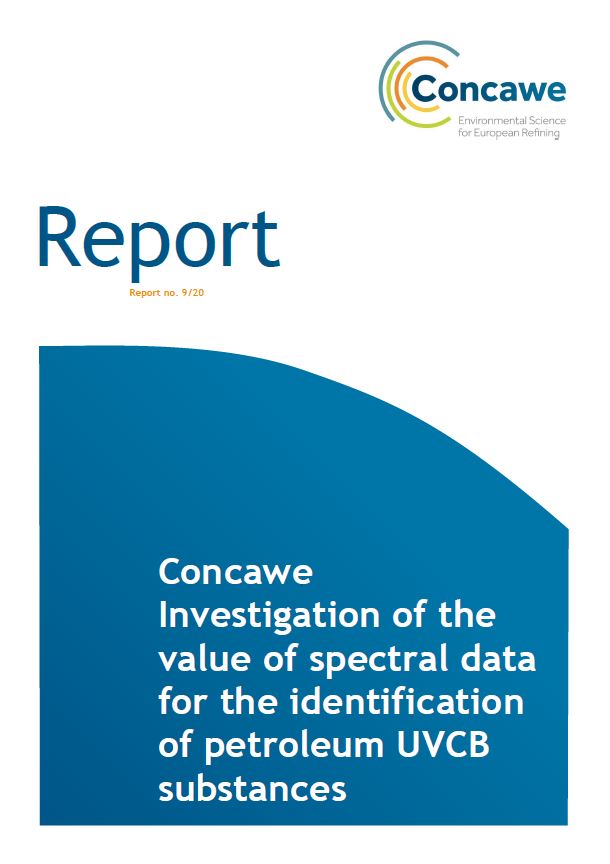
June 10, 2020
Concawe – Investigation of the value of spectral data for the identification of petroleum UVCB substances (report no. 9/20)
Report no. 9/20: This report provides further information on the value of spectral data generated from the Concawe Analytical Program, and provides scientific justification that spectral data provides...
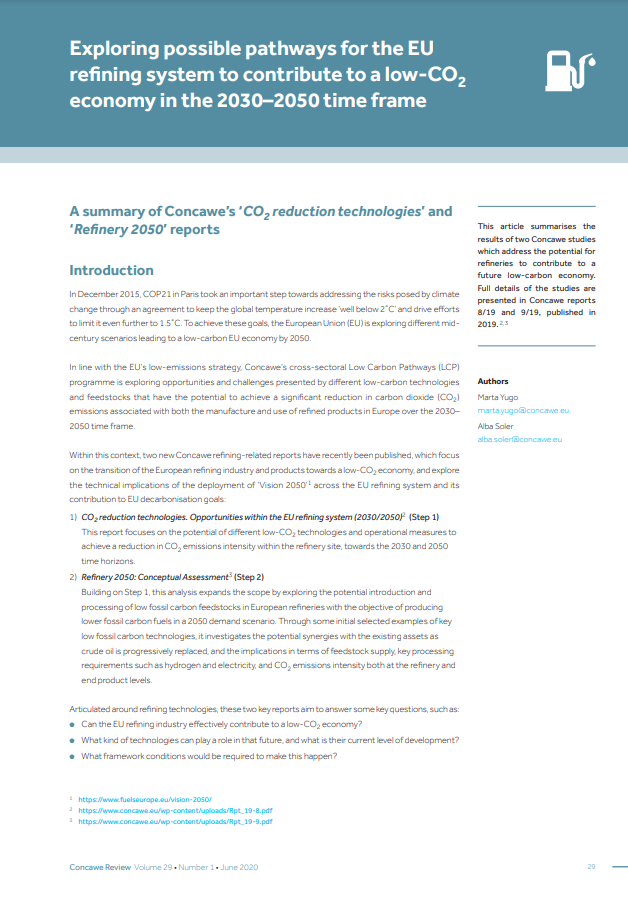
June 2, 2020
Exploring possible pathways for the EU refining system to contribute to a low-CO2 economy 29 in the 2030–2050 time frame (Concawe Review 29.1)
This article summarises the results of two Concawe studies which address the potential for refineries to contribute to a future low-carbon economy. Full details of the studies are presented in Concawe...
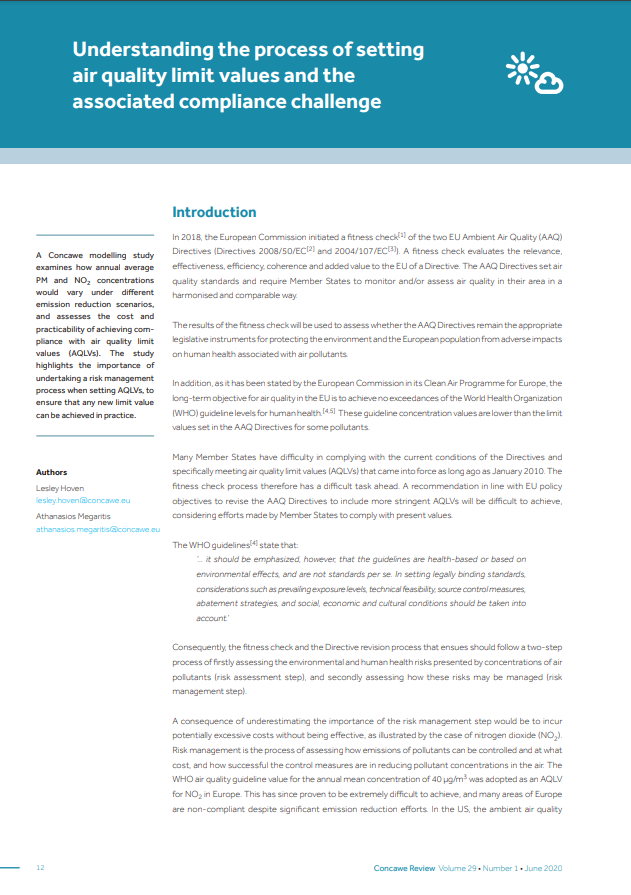
June 2, 2020
Understanding the process of setting air quality limit values and the associated compliance challenge
A Concawe modelling study examines how annual average PM and NO2 concentrations would vary under different emission reduction scenarios, and assesses the cost and practicability of achieving complianc...

June 2, 2020
Running high-octane petrol in suitably adapted engine (Concawe Review 29.1)
Gasoline combustion has traditionally been measured using Research Octane Number (RON) and Motor Octane Number (MON) which describe the fuel’s resistance to auto-ignition (commonly known as ‘knock...
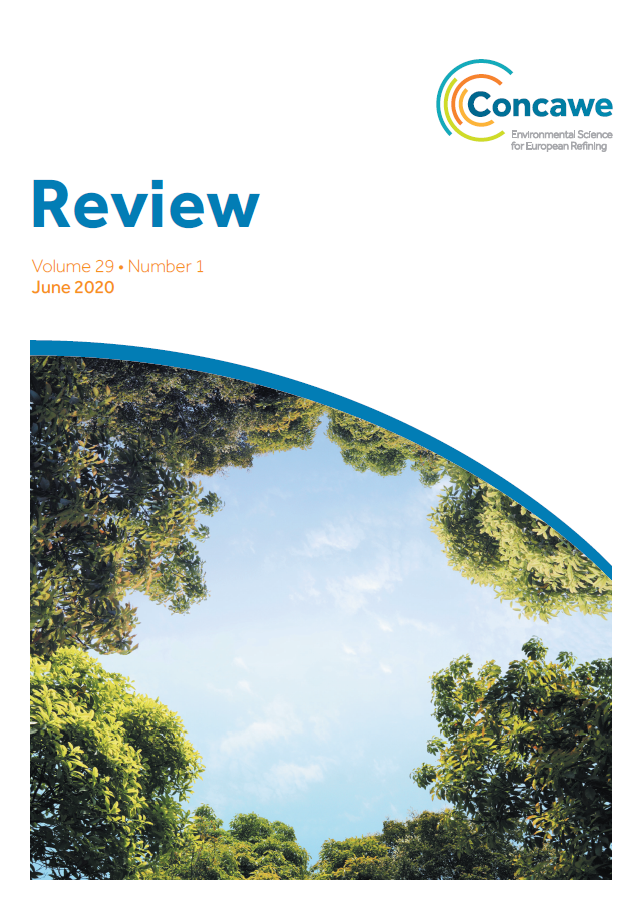
June 2, 2020
Concawe Review 29.1
As the first 2020 edition of the Concawe Review is being published, it has been reported in the news that spring has been abnormally warm in EU countries, providing further evidence of climate change....
Subscribe to publications
You can subscribe here to receive notifications about new Concawe publications (Technical Reports and the Concawe Review)
